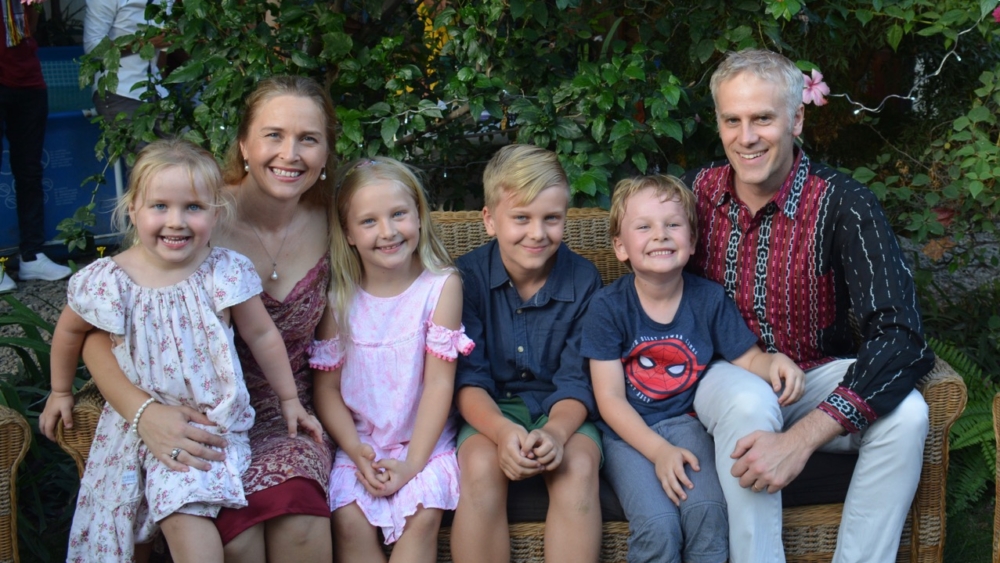Jeremy and Bethany Beckett, with their four children (Levi, Miriam, Micah and Annika) went to Timor Leste on a medical mission in 2016 and stayed until May 2021. Here, Jeremy reflects on what he learned from the experience.
We decided to go to Timor Leste on medical mission with four young children partly for a professional challenge and partly to serve the needy and make sure that our faith was something we were living out and not just talking about.
We wanted our kids to share in our faith in a more concrete way. Although we went to church on a Sunday, said grace at meals and prayers at bedtime, I wasn’t confident that we would have enough influence in leading them to follow Jesus with so many competing voices and cultural influences.
We thought going on mission to Timor would reset the whole trajectory of our family and become a seminal experience for our kids, to help them understand who we are as a family and how we live out what we believe.
That did happen, but not always in the way I imagined. We had to grow and learn an enormous amount through the ways in which we were stretched and challenged to see things differently through our five years there.
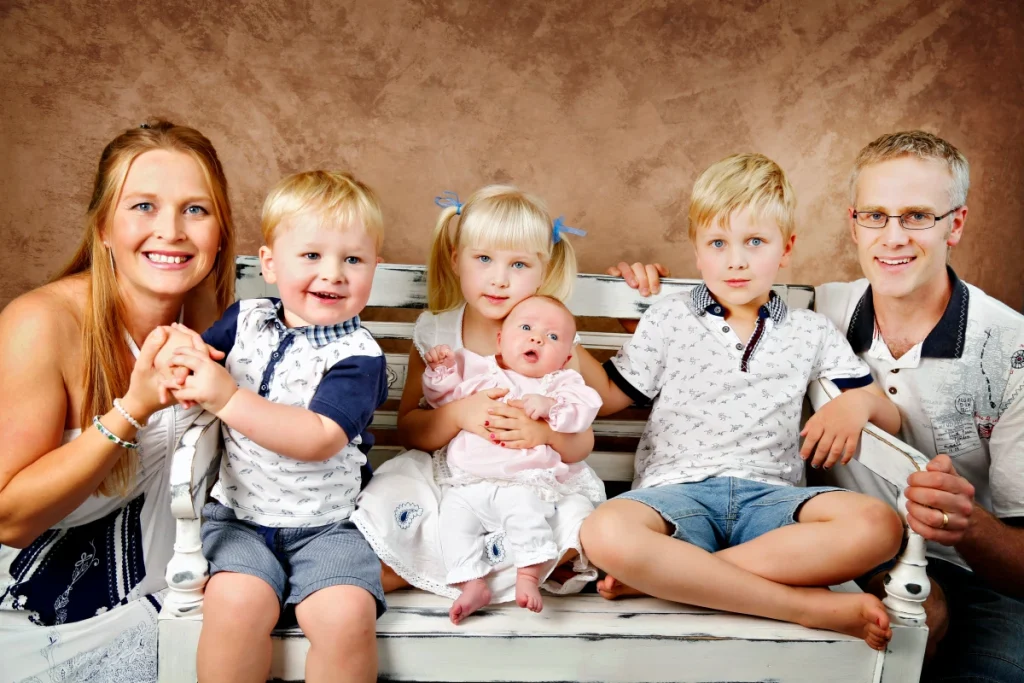
The Beckett family in 2016 when they first went to Timor Leste.
The first 12 months were the hardest. I was sent to become medical director of Bairo Pite Clinic, a small hospital in Dili that was funded by an Australian-based charity that had merged its organisation with an American doctor, Dr Dan Murphy, who’s now passed on. He was a dynamic character – a maverick – revered in Timor as a national hero.
But the clinic wasn’t running very smoothly, and the Australian charity wanted to place someone who could give them better visibility and help to safeguard clinical practice. At first, I thought we were making headway, making an immediate impact by building up the team and introducing some basic protocols to help run the place better.
That crisis was the hardest thing I’ve ever had to do.
But after the first year, we reached an impasse in the partnership with Dr Dan, who was growing frustrated with the changes happening around him. It reached a crossroads at which the partnership completely broke down, and the Australian entity realised the only remaining option was to withdraw from the work at the clinic. It was absolutely devastating and not what any of us wanted.
That crisis played out over five months and it was the hardest thing I’ve ever had to do. I wasn’t sleeping. There were security and safety issues around my family and questions as to whether we were going to get deported. It was intense.
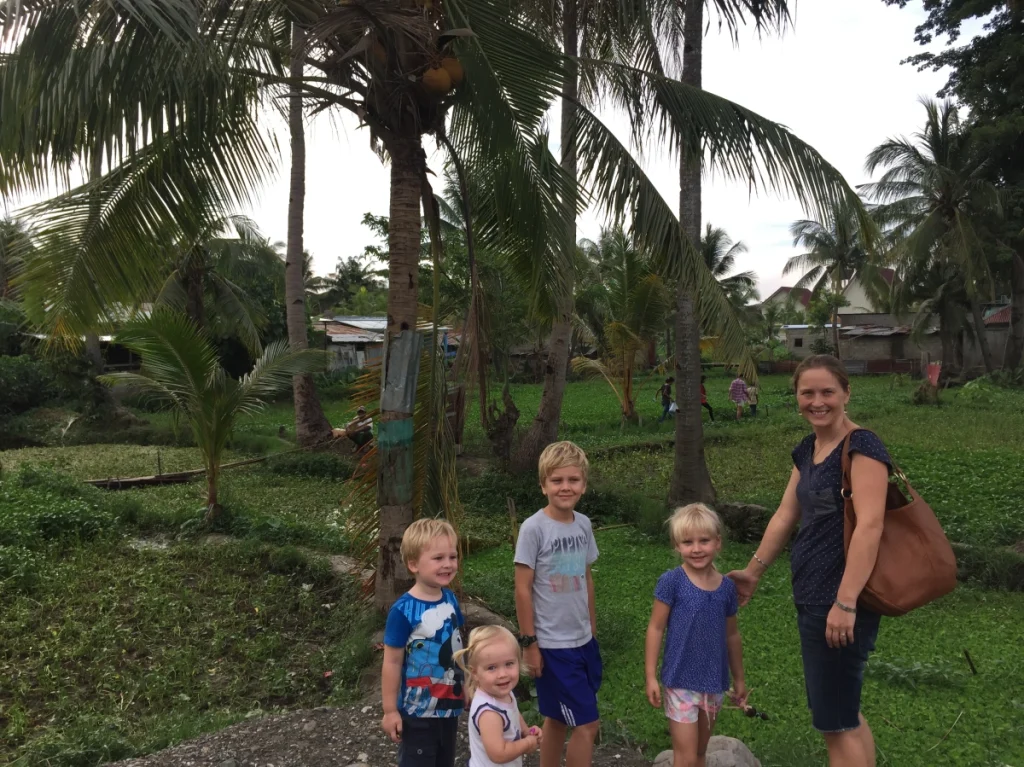
Bethany Beckett with her four kids in Timor Leste
But we never seriously thought going home was the answer. Part of it was stubbornness and just clinging on and trying to make something work out of a messy situation and then asking for God’s help to do that. So it was a real trial by fire for us.
Aside from that crisis, one of the hardest things for our family in those first 12 months was what you might call finding your village, finding your people. In Australia, we’re not so like this, but in Dili you are so interdependent on the people around you for finding services. In Australia, you can ring a plumber and someone will come and fix your toilet. In Timor, the power would often go out and we didn’t know who to get to fix the power. When you don’t know anybody, you’ve got to learn by trial and error and experience. And when you’ve got four little kids, just managing to get what you need from the shop was turmoil enough.
Trying to figure all that out, particularly for Bethany, was hard. While I’d be going off and doing stuff at Bairo Pite Clinic, she’d be home with kids all around her ankles with a new crisis to solve and trying to work out, ‘What do I do’?
I remember the days when it was full-on at the clinic and I’d come home really tired and find things at home were far worse and more chaotic and thinking, ‘Man, if only all I had to deal with was the clinic, I think I’d be okay’. But coming home and then seeing where my household was at, it was like, ‘Oh, this is the hardest part’.
How can we pack all this up? The need is greater than it’s ever been.
But confronted with high rates of malnutrition, the highest rate of TB in the Asia Pacific, HIV, and rheumatic fever, we thought, ‘How can we pack all this up’? The work is not done. The need is greater than it’s ever been. And we have at our fingertips all this interest from Australia, all these donors, all this international expertise, all this enthusiasm – we had a great team. To wrap it all up and scatter that group just seemed crazy.
We were determined not to squander that and try to put the pieces back together in a different shape and see if we could make something work. That had to happen very fast, and we only just pulled it over the line when we set up Maluk Timor.
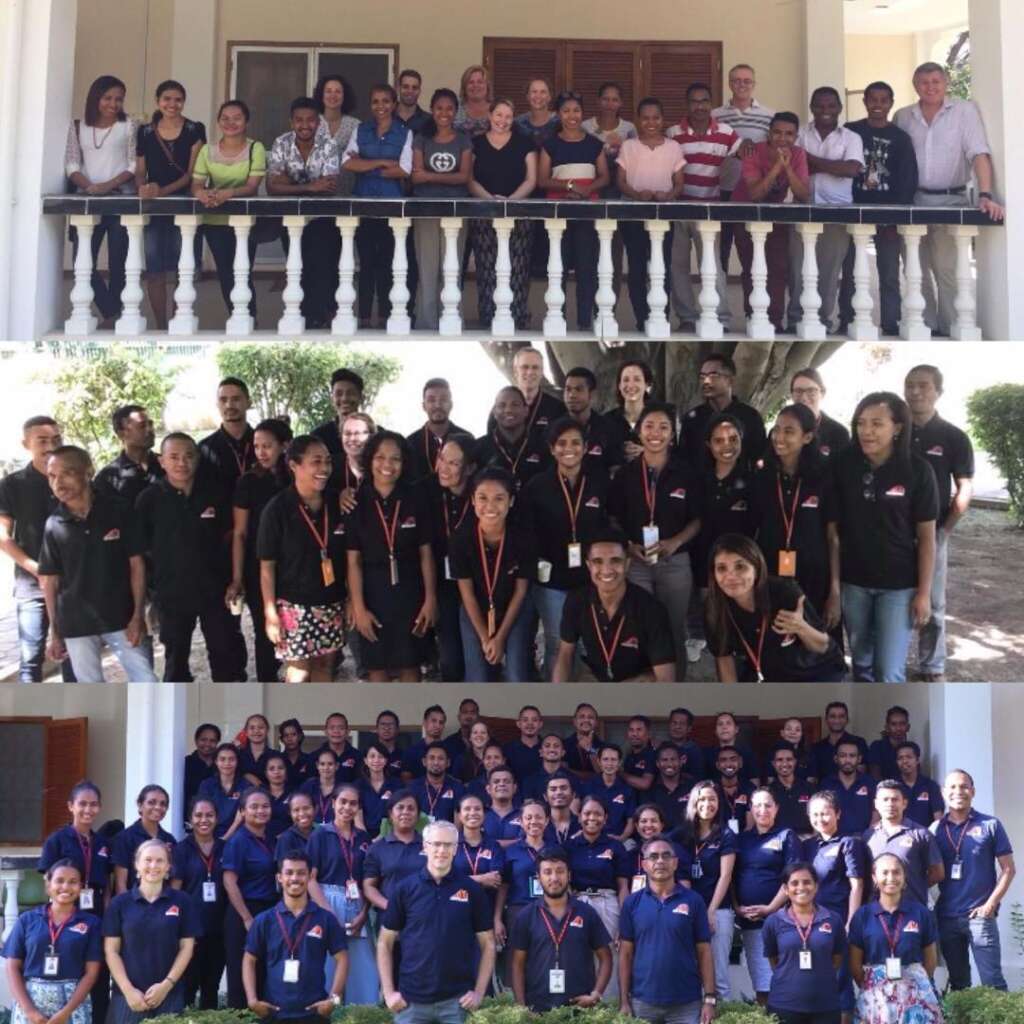
The growth of the Maluk Timor team from 2017 to 2020.
We had a surprisingly rapid recovery. Lots of things went our way and we had lots of good people with us. Maluk Timor was focused on working side by side with the Timorese in their own government health centres. It was clear to me that the ‘Jungle Doctor’ model of the 20th century didn’t have a place in Timor Leste at that point. The world had largely moved on from that model.
Bairo Pite Clinic provided a parallel service alongside the government and often in a way that was quite disparaging of the government and presented us intentionally as a point of difference and as an alternative. We were uncomfortable with that model.
We wanted to turn that around and work closely with the government. It was exciting to have a blank slate and put together a different model that was more strategic and that played to what we believed was the purpose of why we were there.
By the time we left in 2021 we had about a hundred staff and 11 programs.
To reset was an amazing opportunity, but I had to try and sell that vision, and that was touch-and-go- go for a while. The Board in Australia showed a lot of courage and decided to throw their lot in with us, which was a pretty high-risk venture.
We grew quickly and within five months, we had 40 staff and eight programs, and by the time we left in 2021 we had about a hundred staff and 11 programs.
Our big win was gaining an Australian government grant to develop a multimedia training package called ASTEROID to roll out training to 400 staff across all 13 districts of Timor Leste. When it came up, I was partly delighted and partly terrified, because it was going to take us to a new level of expectation that we perhaps weren’t ready for. But we were fortunate that our team included some international guys who helped us develop it.
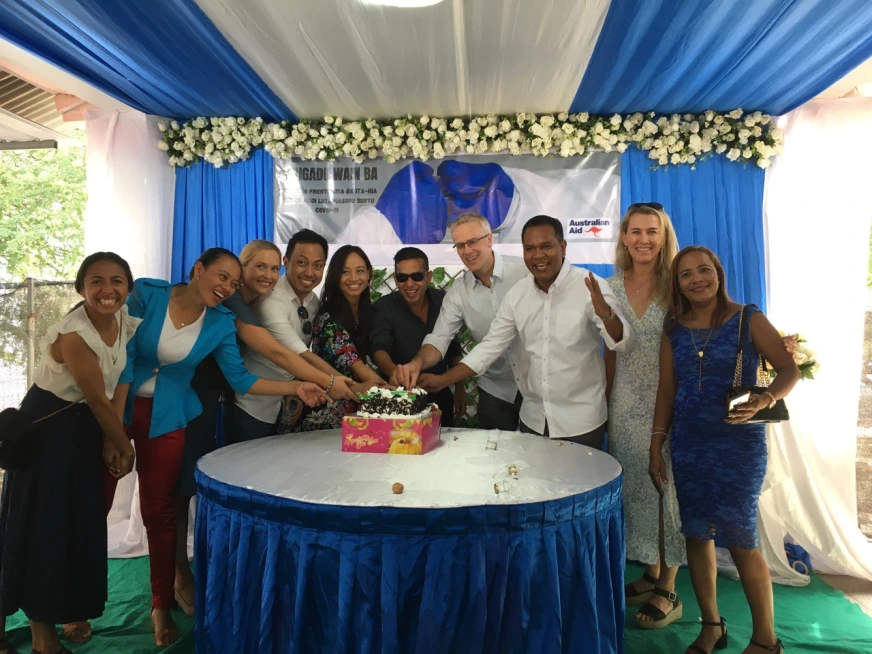
Our ceremony of thanks, acknowledging the many health staff who volunteered to work in the COVID frontline in 2020.
When COVID came, it threatened to derail the whole thing. But in some ways, it gave it the tailwind and the prominence that the project needed and accelerated our development by a number of years by bringing us to the cutting edge of what was happening in the health scene.
That ended up working together for the best, and that ASTEROID project finished in June this year and achieved almost double all the original targets. It was hugely popular, put us on the map and took us out to even the remotest parts of the country.
It was the Steve Bradbury effect – we were the last ones standing!
We were enormously proud of that, because we’d aimed to set a new standard in the quality of health training. We went from being a minor fringe player to suddenly being at the table with WHO and UNICEF and the Minister of Health, and our kids got to take joy rides with President Jose Ramos Horta. He really put us in the spotlight on his Facebook feed, because when COVID came almost all the expats were put on planes and shipped out. We were fortunate to be able to stay and retain a really strong team. We managed to keep around 20 international volunteers – mostly doctors – around us at that time. So when everybody else had emptied out, we were almost at the peak of our powers. It was the Steve Bradbury effect – we were the last ones standing!
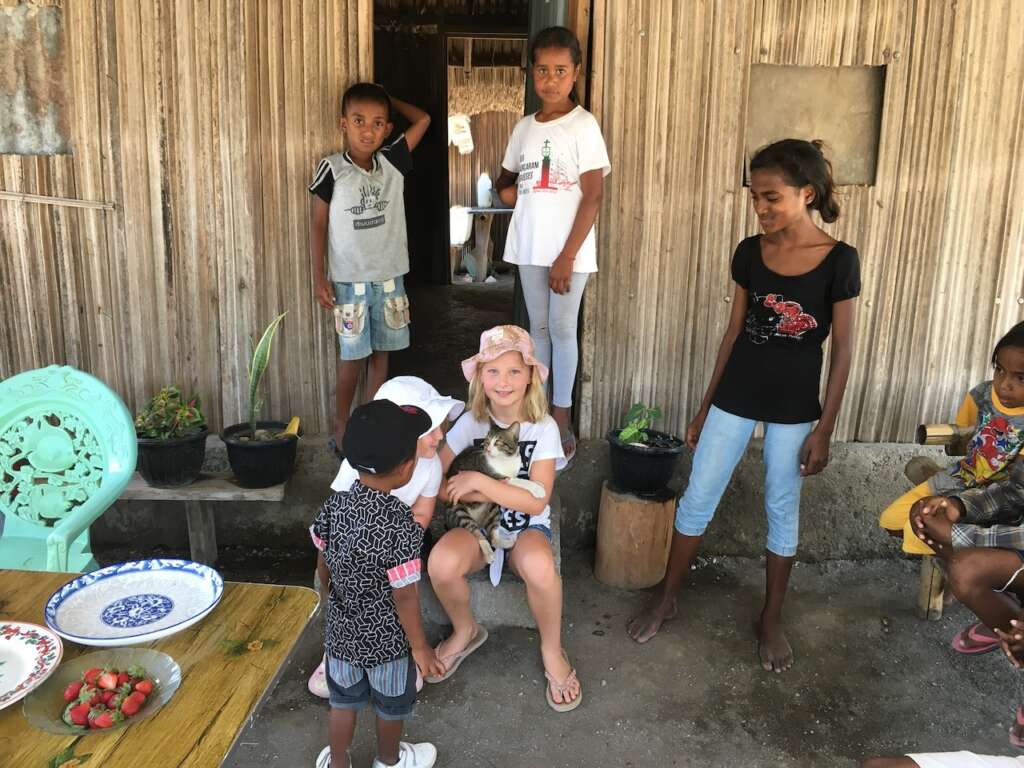
The Beckett family visits the home of their longtime home help, Estela, and is welcomed warmly.
But the way the kingdom works is you don’t really know what difference you made. All you can ultimately do is look at the change in yourself. And it was nice when we brought our kids back to Geraldton in 2021 that people were startled as they met them and said ‘There’s something really different about your kids’. There was a depth, a maturity and character to them and a perspective that was a bit disarming for other people to meet in someone so young. And we recognise we’ve been on our own personal journeys and grew a lot through those years as well.
